“Rivers know this: there is no hurry. We shall get there some day.”
― A.A. Milne, Winnie-the-Pooh
“Now that is one patient man,” he said as he nodded toward a father surrounded by three young boys. The father was teaching his sons to fish. They were in the creek, in full-gear for the rainy, cold morning, smiling between long stretches of concentration, and even longer stretches of waiting.
“Do you know him?” I asked the stranger to my side.
“Nope. Just been watching. I got two sons myself, used to do the same, but more often than not I just got frustrated and called it a day. They’ve been here since before sunrise.”
It was the first day of trout-fishing season in Western New York, and over a dozen anglers were poised along the rapidly moving Cazenovia Creek. I arrived just after sunrise and most of the fishermen were already hours into their day. Not wanting to interfere, I remained off to the side at the base of the bridge and talked with a man who was already taking a break.
“Been here since nine last night,” he said, “Feeling a little worse for the wear, but nowhere’s else I’d rather be.”
“Nine last night?”
“Just to get our spots. We started fishing at midnight.” He nodded toward a group of men in waders and wool caps just off in the distance. I noticed they had a small fire going right near the creek’s edge.
“It must have been a long night standing in the cold rain just to get a spot,” I said.
“We look forward to it all year. Wasn’t much biting before sun up, but those kids and their dad already got some.”
“What’s the longest you’ve waited for a fish to bite?”
“Oh Jesus. All day? Heh. I knew they weren’t biting though. Just a reason to be out in the creek, you know?”
While we talked I watched the father and his boys. Now and again he would lean down, rest a hand on one of their shoulders and offer some advice. The dad sure wasn’t getting much of his own fishing done.
“But that guy, what a good dad. And I bet his boys will be doing this years from now, too. And teaching their own kids, too,” the man said, “Hey, look! He got one!”
Sure enough, one of those boys was reeling one in, his face lit up with excitement and a little pride. The dad let him take care of things, but then helped with the hook, the other two brothers gathering around close. Pretty exciting stuff from the looks on their faces. Then the father pulled out his phone and had the boy pose with his catch. Maybe it was his first.
I read a story once about a naturalist watching a blue heron in a cove, pouring rain beading off its back, balancing on one leg with its wings unfurled at full-length as if to create an umbrella. The idea is to calm the water so it could see what it was hunting for. The heron remained like this for over three hours, when all of a sudden it took a step forward and plunged its head into the water, retrieving one gleaming, silver fish—a patience so steady, so intense, so active.
Often, when we think of patience, we think of passively waiting, but this is not the kind of patience I’m thinking of today. I’m wondering about the heron’s kind of patience, all or nothing, not enduring something with passive resignation, or failing to act. The kind I’m thinking of is dynamic and lasting. Staying with something, with hope, yes, but also enduring something with strength and gratitude even when perhaps the greatest desires of our hearts are delayed and seem very far off in the distance. The heron requires this kind of patience for survival; humans may not need it for survival, but I’m thinking I could sure use some of it for enduring the more difficult things in life with more grace.
I’m wondering if this kind of patience has a lot to do with trust. Trust that the good and the bad things in life will come and go—and you can’t always see these things, sometimes they are intangible, but nevertheless they come and go. The heron knew that, in time, the tide would bring him a fish, and right then it was simply the moment to open his wings and wait.
I love to look up words for their origins, and patience comes from the same root as the words passion and passive. It comes from a root meaning of “suffering.” Often, when we use the word patient it denotes the tolerance of something unpleasant, or at least not ideal. Otherwise what would we need the patience for? Someone who is waiting calmly could be considered patient. It happens all the time, someone thanks us for our patience when they make us wait, right? But more than that, the word patience means the willingness to stay where we are and live the situation out until something manifests, whatever that something might be. The suffering part has me curious, though. I can see where they might intersect at times, but mostly I want to think of patience in a positive light. There may be a form of suffering in it, that we are not gratified right away when we must wait a long time for something, but what I’m after is the sweetness in the waiting. The knowing that something is worth waiting for. The trust in the unknown that is required to keep the patient wait alive.
The heron knew his fish would come some day, enough to stand there working at his “waiting” forever, if he had to. The father at the creek showed another form of patience, the gentle and nurturing kind that knows time spent now will reap its rewards a little today, but mostly in the years to come. Many ways to be patient.
There are various things about my life that require patience; it’s that way for all of us. There are also a few things I’ve seemed to have endless patience for that always keep me wondering, what if? What if I spend years of my life actively working toward something I’m waiting for? What if, unlike the heron, my fish never arrives? Think about this: is there a point in time that the heron would give up, call it a day? I wonder.
Writing is one of these things for me. Especially poetry. Poets and writers spend an awful lot of time actively waiting. Waiting for the idea to arrive. Waiting for the right word. Waiting for that perfect first line, or the thread that will tie it all together. It’s an active form of patience, just like the heron standing umbrella-winged at the water’s edge, because our brains are always working, our eyes always open, our souls always searching for that one luminous particular to light up inside of us and show us the way. Sometimes the wait is longer than others, and most of us write whether we feel inspired to or not; the act of writing, even if it’s drivel, can magically bring the next idea along in the strangest of ways. And yet, what is it that keeps us going at it? It’s certainly not money. Well, possibly for a small handful of writers, but certainly not for any writers I personally know. It’s not for fame, as most of us will never be known beyond our own circumference. It’s a little about immortality, setting down on paper something lasting about the time and place you come from, yes. Mostly I believe it’s about love and wonderment, and a very deep and steadfast desire for finding a way to express the human condition and the world around us, even if we never really do come to understand it. At least for most of the writers I know. So what is the dangling carrot that gives us so much patience to keep showing up and doing the hard work?
The work is its own reward.
The dynamic and steadfast waiting is worth it, because the prize is the hope of one day being able to get it right, to really succeed in expressing the ineffable. Still, no matter how much I understand this, I can’t help but sometimes worry that I’m spending all this time waiting for nothing. That big “what if the dangling carrot never arrives?” What if I just never end up getting it right?
Would the heron eventually give up? Would the father stop spending the time teaching his sons to fish if he doubted they would value its lessons later in life? I don’t think there’s an answer, except for the answer called trust and faith. Without them, patience is one, corked bottle floating across an endless sea.
We all have things in life we’re waiting for, some trivial, some profound. And sometimes it’s very, very hard and often does feel like suffering. But what if we could look at it as something active, even if it’s just our hearts engaged in something that means the world to us? What if, like the heron, we stand at full attention to the passing of time that stands between us and what we desire? And what if like the father, we have faith and trust that the time we are spending is worthwhile whether it pays off or not? What if the very act of patience is the birthplace of gratitude and compassion? I believe it can be the seed of both.
What is it that you long for? What is the one thing that you long for that is so far out in the distance, not impossible, but just not within reach? That you would actively wait for and work toward as long as it takes? I would love to know.


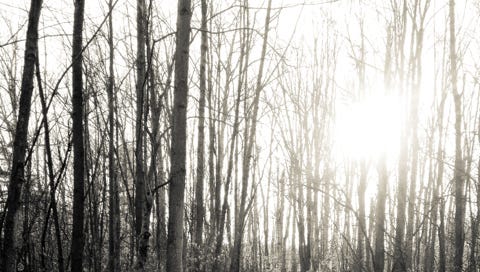



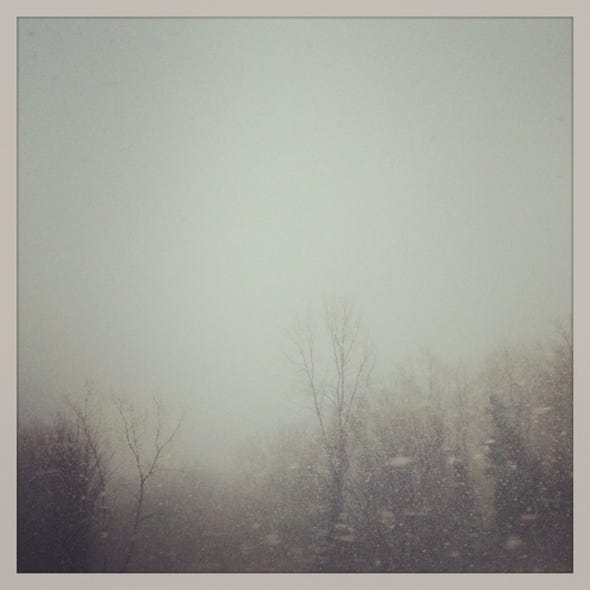
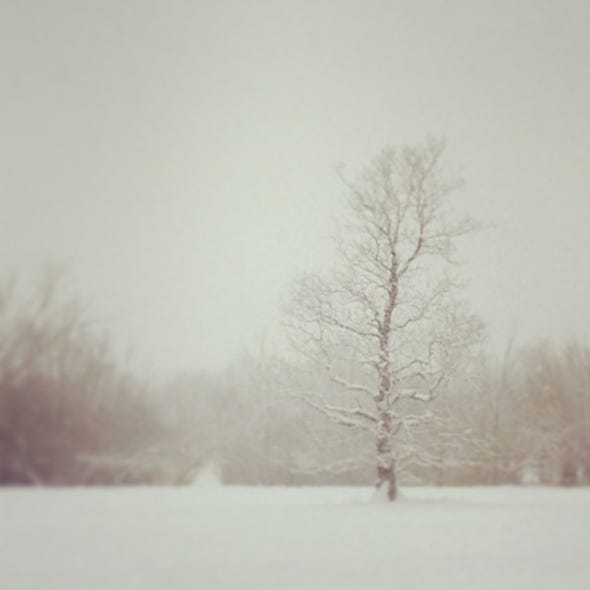
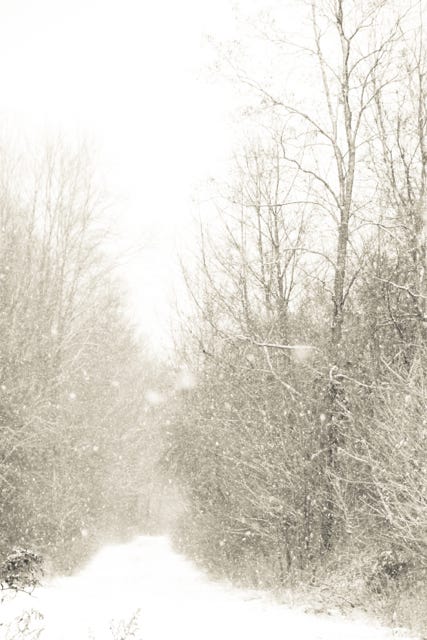
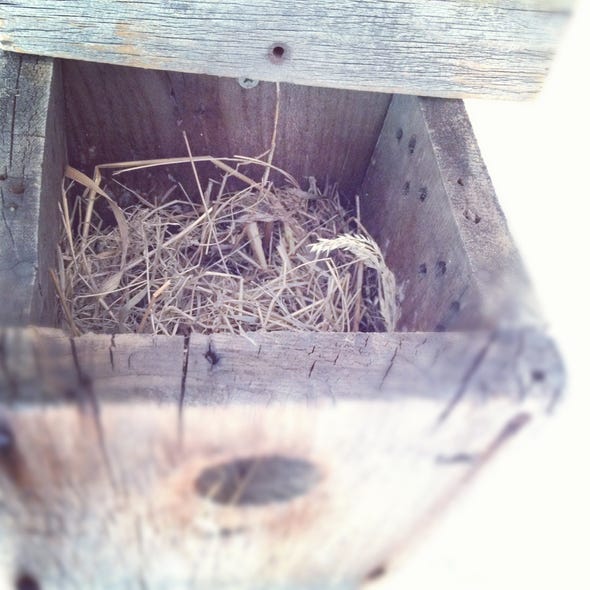
"The kind (of patience) I’m thinking of is dynamic and lasting. Staying with something, with hope, yes, but also enduring something with strength and gratitude even when perhaps the greatest desires of our hearts are delayed and seem very far off in the distance." Thank you, Kateri.
Kateri,
Thank you for the Great Blue Heron umbrella. I love that being. 23 million years of evolution…wise elder who waits 🌱